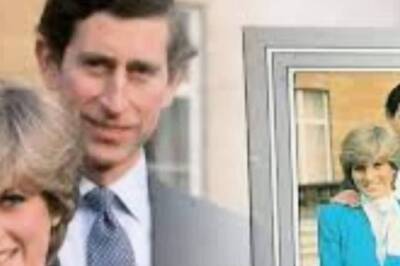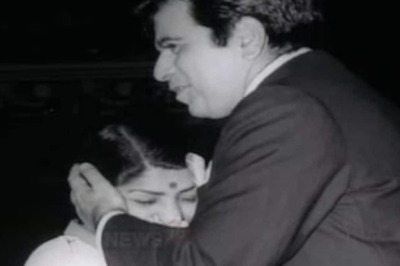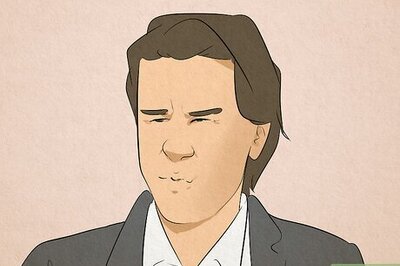
views
Frankfurt: The European Central Bank cut interest rates by a quarter point to 1.25 per cent in a surprise move on Thursday, acting boldly to support the ailing euro zone economy at President Mario Draghi's first policy meeting in charge.
The move gave an immediate boost to stock markets, which will be looking for any signal at Draghi's first post-policy meeting news conference on whether the ECB is ready to boost its bond purchases to calm tensions in the euro area.
The Italian has walked into a maelstrom in his first week at the ECB's helm, with euro zone leaders contemplating a future without Greece and economic policy paralysis in his home country threatening to push Rome into the eye of the storm.
The decision to cut rates was unexpected and came despite inflation in the 17-country euro zone staying at 3.0 per cent for a second month running in October, well above the ECB's target of just below 2 per cent.
"What a starter. It is obvious that the ECB has caught the crisis virus and is trying everything it can to prevent a full-fledged recession," ING economist Carsten Brzeski said.
"Now, the big question for the press conference is whether the ECB is also willing to do everything to prevent a further escalation of the sovereign debt crisis, becoming the unconditional lender of last resort of the euro zone."
The euro fell after the rate decision and stock markets caught a tailwind, with an index of European top shares up 2.3 per cent on the day. German 2-year bond yields fell and December Euribor future jumped 13 basis points.
European leaders said earlier they were prepared for Greece to leave the euro zone to preserve their 12-year-old single currency if Athens does not decide quickly to implement a bailout programme, putting the likes of Italy and Spain, and even France, firmly in the markets' sights.
Draghi will join the leaders in Cannes, France, after his debut news conference as ECB president at 1330 GMT at which he will give a statement on the Governing Council's policy decision before taking journalists' questions.
Crucial will be any indication Draghi gives about carrying on, or even scaling up, the ECB's bond-buy programme, a controversial tool that has led to the resignation of two German policymakers.
Europe's ultimatum to Greece, after Prime Minister George Papandreou's decision to call a referendum on a bailout plan, has deepened the crisis and raised pressure on the ECB, which many analysts see as the only institution with the firepower to bring calm.
Bond Buying
Draghi succeeded France's Jean-Claude Trichet as ECB chief on Tuesday -- a day that saw the ECB buy Spanish and Italian bonds but barely manage to cap a rise in yields on the debt of the euro zone's third largest economy.
"I'm looking for something but I expect him to stick to the Trichet language and say 'it's still ongoing'," Brzeski said of the bond-buy programme.
Draghi must balance an eagerness to curry favour with the German contingent at the ECB against growing financial market pressure to intervene on a bigger scale to lower the borrowing costs of Italy and Spain.
The premiums investors have to pay to hold Italian and French 10-year government debt over benchmark German Bunds rose to their highest in the euro era on Thursday with signs growing that the Greek government may fall.
Draghi appeared to indicate last week that he stood ready to help tackle the debt crisis by going on buying the bonds of troubled states, though Trichet told Reuters the Italian's remarks had been over-interpreted.
Trichet had signalled previously that the ECB was keen to withdraw from the bond-buying policy once the euro zone's EFSF rescue fund gained new powers to intervene on bond markets.



















Comments
0 comment